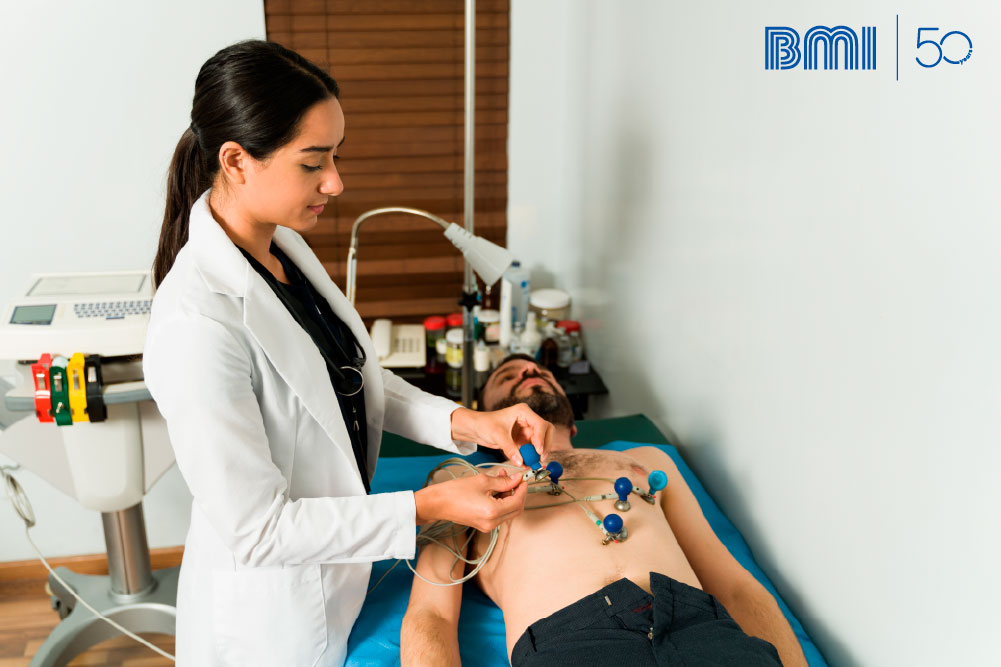A turning point for human beings is reaching the age of 30, it is a stage in our lives where we leave behind a decade of complete youth and we are heading towards one where the natural aging process of the body is evident every day because you start to feel it. with complete clarity.
It is also the The right time to start paying more attention to our health and start with the process of performing medical examinations at least once a year, the results of which will help us to monitor and control our state of health.
At the Latin American level there is no strong culture of prevention and, for this reason, it is not common to go to the primary doctor frequently, monitor our state of health and supervise certain aspects such as cholesterol, triglycerides and glucose control because we associate it with old age.
However, Dr. Javier González, Medical Director of Global Reach Health recommends performing certain medical tests when we reach our third decade. The checkup depends on our state of health, but it is important to start with a clinical examination and basic analysis (laboratory tests).
Within the laboratory tests, glucose, cholesterol, creatinine (to assess kidney function), defenses (leukocytes or white blood cells) and rule out possible anemia (hemoglobin figures) should be checked. Depending on the result and if there are any previous symptoms, another series of complementary tests can be ordered for each specific case.
Tests or specifications are added to this annual routine check-up depending on the decade of life, but after the age of 30 these are the recommended ones. In addition, it is suggested to do other reviews such as vision and dental, at least once a year.
"The objective of this routine control is to be able to detect medical problems in time, assess the risk of future problems, promote a healthy lifestyle, be up to date with your vaccinations and help each person become familiar with their provider in case of illness¨ says González.
Likewise, it recommends different tests according to sex. Men, for example, should have a complete blood test (CBC) done at least once a year. Depending on your overall health and level of physical activity, this exam may be scheduled every 3 years. A hematology will help you identify diseases such as diabetes, high cholesterol and sexually transmitted diseases.

After the age of 30, men should perform:
- Electrocardiogram every 2 years, it is ideal to prevent and identify heart disease.
- blood pressure measurement It is important to keep a weekly or monthly control of your blood pressure. Avoid taking the measurement after physical activity or eating too much. Ideally, it should be at the same time of day, preferably one to two hours after breakfast.
- testicular exam: Although in the 30s it is not necessary to do it once a year, it is important to do a testicular self-exam at least twice a year and a testicular exam with a specialized doctor at least once every two years. If there is any discomfort, you should go to the urologist of your choice as soon as possible.
- Prostate: Now there are different options to the traditional tactile examination of the area. You can request a blood test to check the prostate at least once every 3 years. That is, at 33 it is mandatory that you carry out this check-up.
In the case of women after the age of 30, it is the time of full childbearing years. For this reason, it is essential that the following tests be carried out: blood pressure, cholesterol, diabetes, a dental and vision check-up, vaccination review, hormonal profile (menstrual irregularities), check-ups to detect sexually transmitted diseases, a pHPV test (human papilloma virus) every 5 years and, of course, once cervical cytology every 3 years to rule out cervical cancer.
The goal of cervical cytology is to look for abnormal cells in the cervix that could develop into cancer over time. If any abnormality is detected, it is possible to receive treatment in a timely manner, for this reason, it is recommended that this type of control be done frequently.
On the other hand, although mammography is usually recommended for women after 40, If there is a history of breast cancer in your family, it is important that you do it because early detection could prevent you from developing this type of cancer. This exam allows to study the breasts by means of X-rays, differentiating tissue densities that help to identify small malignant tumors and benign pathologies.
In conclusion, with this article from BMI we want to raise awareness about the importance of prevention, don't value your health until you're sick. Carrying out continuous check-ups will help you identify negative and risky behaviors, primary prevention will allow you to detect any irregularities in time and, even more importantly, it could help you save your life.














